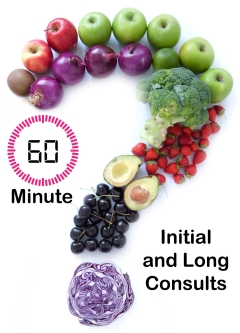DrCarney.com Blog
Milk May Raise Mortality Risk
An increase in mortality risk is associated with frequent consumption of milk, according to a 2014 study published in the British Medical Journal. A team of Swedish researchers analyzed the diets of more than 100,000 men and women recruited from 3 counties in Central Sweden and estimated the mortality hazard ratios of all the subjects that participated in this study. At the end of the study, the researchers concluded that individuals who drank milk regularly have a higher risk of dying prematurely from chronic disease-related deaths.
The results of this study have massive implications. The consumption of dairy products is increasing in popularity all over the world. Out of the 816.69 million metric tons of milk produced worldwide in 2015, 94 million metric tons were consumed in the US. About 71 percent of Americans use milk and other dairy products as a major source of protein.
Karl Michaelson, MD, PhD, a professor of medical epidemiology at the Upsala University, Sweden, led the team of researchers. Karl Michaelson and his team suggested that the high concentrations of D-galactose present in milk could be responsible for the positive association between high milk intake and increased mortality risk. Several human and animal studies have shown that high circulating levels of D-galactose induce oxidative stress and inflammation, both of which have been implicated as a causal factor in the development of many chronic diseases, including cancer, diabetes, heart disease, osteoporosis, and Alzheimer's disease. In addition, D-galactose have been established to cause premature aging and shortening of lifespan in animals.
Milk is the major dietary source of D-galactose. Milk is packed with high amounts of lactose, which is broken down to its components sugars: glucose and galactose. Although cereals, fruits, and vegetables still contain galactose, the concentrations of galactose in these plant foods are too little to trigger oxidative stress and inflammation that promote premature aging, the development of several diseases, and chronic disease-related deaths.
Healthier Alternatives to Dairy Milk
Milk is widely marketed as a nutritious source of calcium and protein to people of all ages. However, milk is packed with unhealthy nutrients, such as cholesterol, saturated fats, and lactose sugar, as well as proteins that promote the excretion of calcium from the body by the kidneys, thereby increasing the risk of osteoporosis. Broccoli, kale, lentils, beans, tofu, and soy milk are better sources of calcium and protein. If fact there are now many plant based milk substitutes which do not have the negative problems associated with dairy milk. Substituting dairy milk and other dairy products with products from whole plant based sources can help to reduce an individual's risk of suffering from many chronic diseases.
Additional Information:
(1) Milk Intake and Risk of Mortality and Fractures in Men and Women: Cohort Studies
(2) US Milk Market: Statistics and Facts
(4) List of Vegan Foods With Protein and Calcium
(5) Milk Makes Estrogen Levels Rise
(6) Is Cow Milk Designed for Humans?
Scroll Down Page to Leave Comments

What Have You Got to Lose?
Fight the Obesity Epidemic! We provide Starch-Smart Support through our Helpful Sharing Community, Discussion Forums, and Blogging Platform.
One Hour Phone Consult with Dr. Carney

Telephone Food Coaching Sessions with Linda Carney MD
Due to demand for nutritional advice, Dr. Carney's offers Starch-Smart® System "Dietary Care Extraordinaire" Food Coaching telephone sessions. The first sessions is always one hour. Subsequent sessions can be thirty minutes or one hour:
Click Here For 60 Minute Food Coaching Session
Please Note: Food Coaching sessions are not medical appointments and are not intended to replace your own physician. No tests will be ordered and no prescriptions will be provided.
When you subscribe to the blog, we will send you an e-mail when there are new updates on the site so you wouldn't miss them.




